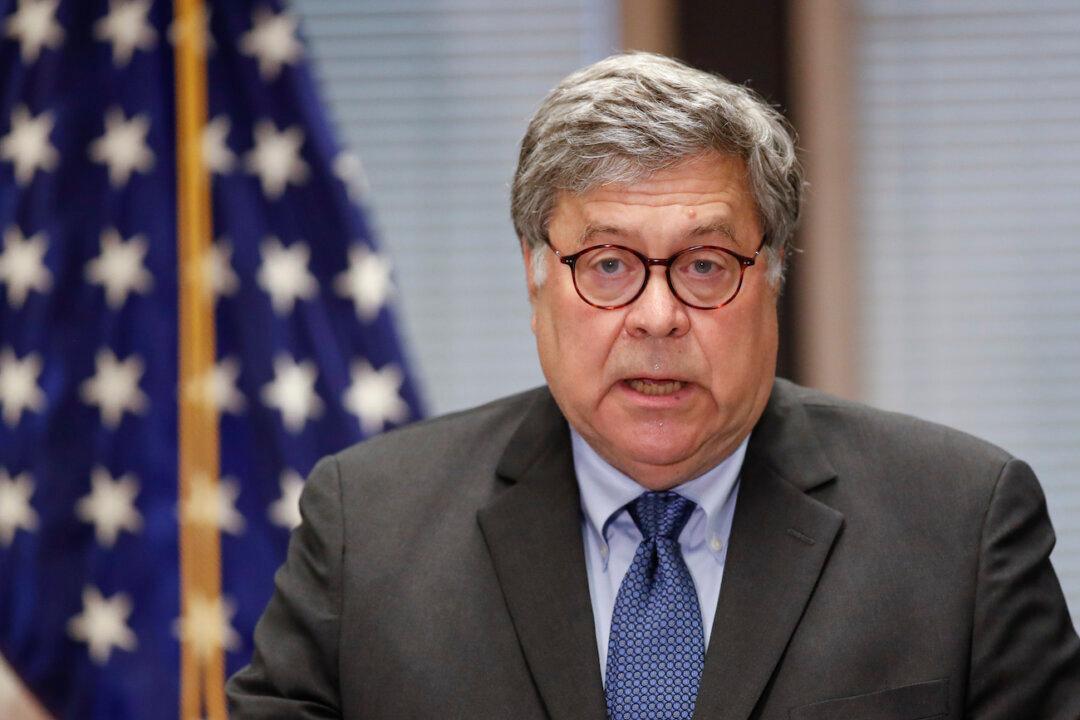Attorney General William Barr on Thursday announced that the Justice Department will start allowing officers serving in federal task forces to wear body-worn cameras in specific circumstances.
“After spending a substantial amount of time examining this issue, assessing the results of the pilot program, and taking into account the interests and priorities of all the law enforcement agencies involved, I am pleased to announce that the department will permit the use of body-worn cameras on our federal task forces in specific circumstances,” Barr said in a statement.




